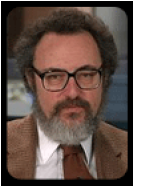Michael Apple is a Professor of Education at the University of Wisconsin, Madison, and a leading theorist of education. Here he describes the way in which education works selectively to exclude certain groups.

Two things have been central to this approach, so far. First, it sees schools as caught up in a nexus of other institutions—political, economic, and cultural—that are basically unequal. That is, schools exist through their relations to other more powerful institutions, institutions that are combined in such a way as to generate structural inequalities of power and access to resources. Second, these inequalities are reinforced and reproduced by schools (though not by them alone, of course). Through their curricular, pedagogical, and evaluative activities in day-to-day life in classrooms, schools play a significant role in preserving if not generating these inequalities …
These two central concerns—the problem of schools being caught in a powerful set of institutions and the role of the school in reproducing inequalities—mean that one interprets schools in a different way … Rather than interpreting them as ‘the great engines of democracy’ (though there is an element of truth in that), one looks at schools as institutions which are not necessarily or always progressive forces. They may perform economic and cultural functions and embody ideological rules that both preserve and enhance an existing set of structural relations. These relations operate at a fundamental level to help some groups and serve as a barrier to others.
This is not to imply that all school people are racist (though some may in fact be) or that they are part of a conscious conspiracy to ‘keep the lower classes in their place.’ In fact, many of the arguments for ‘community’ and about curriculum put forth by … educators, curriculum workers, and intellectuals … [are] based on the best liberal intentions of ‘helping people.’ Rather the argument being presented here is that ‘naturally’ generated out of many of educators’ commonsense assumptions and practices about teaching and learning, normal and abnormal behavior, important and unimportant knowledge, and so forth are conditions and forms of interaction [that reproduce structures of inequality].
Apple, Michael W. 1979. Ideology and Curriculum. London: Routledge. pp. 63–64. || Amazon || WorldCat
